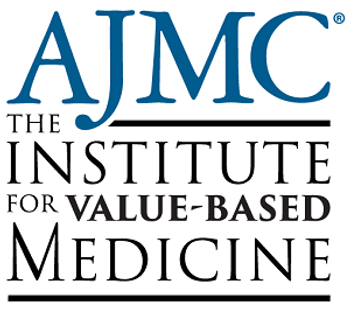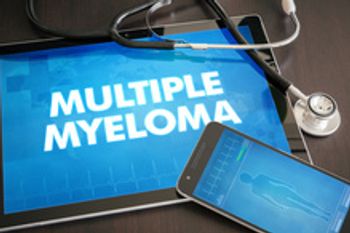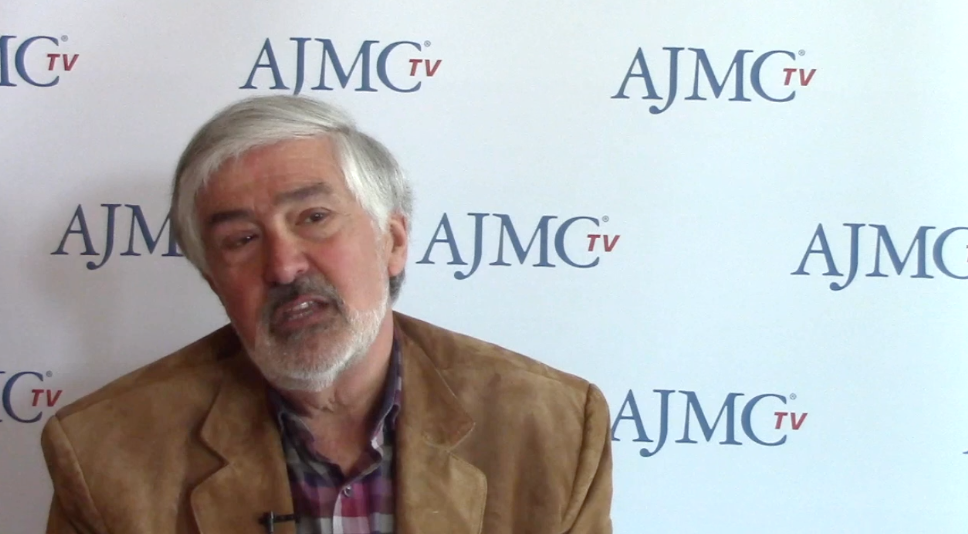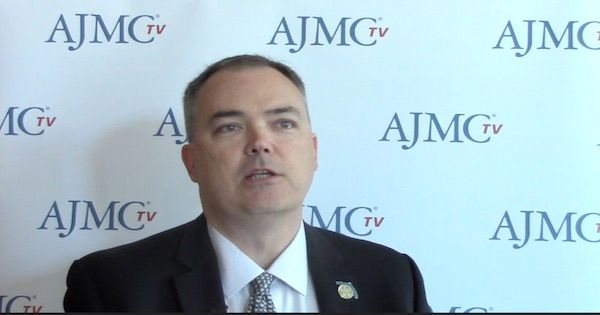
Oncology
Latest News
Latest Videos

CME Content
More News

Community oncology practices need to come together as much as possible in order to respond to changes in the market, have a common voice, and to share best practices and learn from each other, said Barry Russo, chief executive officer of The Center for Cancer and Blood Disorders.

The care team is made up of a number of members, who work together to uncover and then address any barriers that patients have, said Jessa Dunivan, patient services manager, Northwest Medical Specialties.

As clinicians learn how to manage patients most efficiently under a value-based care of delivery, they need to identify patients and risk-stratify those patients, said Ray Page, DO, PhD, president and director of research at The Center for Cancer and Blood Disorders.

Targeted interventions by patient characteristics to improve fecal immunochemical test completion could reduce disparities in colorectal cancer screening and improve overall compliance with screening recommendations.

Alexandra Quinn on the Importance of Sustaining the Role of Community Health Workers in Cancer Care
Alexandra Quinn, chief executive officer, Health Leads, discusses the growing role of community health workers in cancer care and why it's important to make the work they do more sustainable.

Oncology needs to learn to use technology not just for keeping medical records, but also for caring for patients, explained Erich Mounce, chief operating officer, OneOncology.

Genetic alternations in colorectal cancer (CRC) are linked to different survival and treatment outcomes, according to a study that used next-generation sequencing (NGS) of tumor DNA. The study was published in Journal of Clinical Oncology.

The first day of the 2019 Community Oncology Conference, the major annual meeting of the Community Oncology Alliance (COA), featured an update on its effort to find alternatives to CMS' Oncology Care Model.

The Patient Access Network (PAN) Foundation today opened a new patient assistance program for people living with Waldenstrom macroglobulinemia, a rare type of blood cancer that originates in the lymphatic system and is characterized by an excess of abnormal white blood cells and proteins called immunoglobulins.

Today we’re speaking with Dr Elizabeth Mynatt, the executive director of the Institute for People and Technology and a professor in the College of Computing at the Georgia Institute of Technology. Dr Mynatt and her team developed an app called MyPath that uses artificial intelligence to help guide a patient’s cancer journey.

As novel therapies drive up the cost of drugs, it is becoming increasingly difficult for community oncologists to keep costs below value-based care program targets, according to a new survey from Integra Connect.

The revolution in cancer care isn’t just about the wave of life-saving therapies, or the role of genetics in pinpointing exactly who should get which drug and when. As Ray D. Page, DO, PhD, FACOI, tells it, change also means getting back to the basics, so that the relationship between doctor and patient drives care—not insurance companies or Medicare or rules from the FDA.

Tom Gallo, the former president of the Association of Community Cancer Centers (ACCC), and Ali McBride, PharmD, the current president of ACCC, discuss how their members feel about the state of cancer delivery, recent trends, addressing burnout, and sustainability of cancer care delivery.

A lack of diversity in cell lines used for laboratory studies means underrepresented populations and minorities might not benefit from precision medicines as quickly as people from European ancestry.

Ali McBride, PharmD, MS, BCOP, was named 2019-2020 president of the Association of Community Cancer Centers (ACCC) during its 45th Annual Meeting & Cancer Center Business Summit on March 22, 2019, in Washington, DC. McBride is the clinical coordinator of hematology/oncology at The University of Arizona Cancer Center.

Every week, The American Journal of Managed Care® recaps the top managed care news of the week, and you can now listen to it on our podcast, Managed Care Cast.

Erich Mounce, chief operating officer, OneOncology, drew on his experience from West Cancer Center to discuss how community oncology can improve access to care and other inequalities in cancer care.

This week, the FDA sent out an alert to various healthcare professionals and the public to warn about the risks associated with the investigational use of venetoclax (Venclexta) for the treatment of patients with multiple myeloma (MM). The alert is based on data from the ongoing phase 3 BELLINI trial evaluating the drug for this treatment.

Multigene testing provides a lot of information that providers have to be familiar with in order to adequately explain it to their patients, said John H. Ward, MD, Huntsman Cancer Institute at the University of Utah.

CMS’ proposal that patients be enrolled in a clinical trial or registry to get Medicare coverage for chimeric antigen receptor (CAR) T-cell therapies will help improve access, for the most part, but there is the risk that some organizations will choose not to offer this treatment, said John W. Sweetenham, MD, of Huntsman Cancer Institute at the University of Utah.

A diverse panel of representatives from different practice models provided insights into what has worked for them and what has not in trying to improve cancer care. The discussion took place in Washington, DC, at the Association of Community Cancer Centers

While there is currently a presence of technology in healthcare, the future holds much more promise, said Allen Lichter, MD, FASCO, senior partner of TRG Healthcare.

Patients with high-risk breast cancer who receive a 21-gene assay genomic test may be able to avoid chemotherapy and ultimately save a significant amount of money.

Fear and denial can contribute to a patient’s hesitancy to seek prompt treatment, says Beth Wittmer, RN, OCN, manager of care management at Florida Cancer Specialists and Research Institute.

On day 2 of the Community Oncology Alliance's annual Community Oncology Conference, held April 4-5 in Orlando, Florida, we spoke with Debra Patt, MD, MPH, MBA, executive vice president of Texas Oncology, and Jeffrey Vacirca, MD, chief executive officer of New York Cancer & Blood Specialists.

















